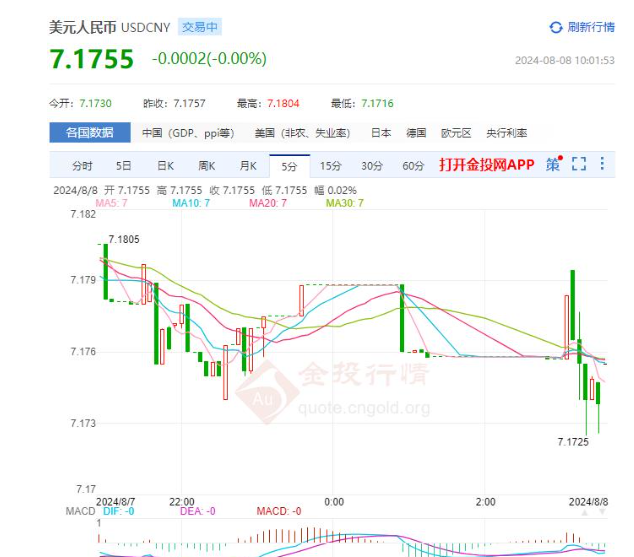Recently, the exchange rate of RMB against US dollar has attracted wide attention in the international market. As the world’s largest reserve currency, the dollar has long dominated international transactions, but with the rise of China’s economy and the acceleration of the renminbi’s internationalization, the balance is shifting subtly. Let’s take an in-depth look at the latest developments in this phenomenon, possible trends, and what this means for global trade and investors.
Current exchange rate status: According to the People’s Bank of China, as of July 2024, the central parity rate of RMB against US dollar remained around 6.3, which remained at a relatively stable level overall despite a pullback from the historical high. This indicates that the use of the renminbi in global trade settlement has increased, while the dominance of the dollar has not been completely shaken.
Us Dollar volatility and RMB internationalization: As a global benchmark currency, the US dollar’s interest rate adjustment and policy trend have a direct impact on the global market. Recent fluctuations in the US dollar index reflect expectations of tighter US monetary policy, which in part has prompted some countries to seek to diversify settlement currencies, including the renminbi. Through flexible exchange rate management policies, the PBOC has ensured the stability of the RMB exchange rate and provided confidence to international trade participants.
Market Trends and Impact Analysis:
Trend 1: Globalization of RMB settlement: As more and more countries, such as Gulf countries, developed countries in Europe and emerging market countries, recognize RMB, the RMB settlement network will be further expanded. This would reduce transaction costs while also reflecting the process of diversification in the global financial system.
Trend 2: Challenges to US Dollar dominance: The rise of the international status of RMB may weaken the absolute dominance of US dollar, posing a potential threat to US dollar hegemony. This will prompt dollar policymakers to reassess the impact of their monetary policy on global financial stability.
Impact 1: Trade costs and risk management: For firms, the use of RMB for settlement can reduce exchange rate risk, especially in commodity transactions, which may encourage more firms to switch to RMB as settlement currency.
Impact two: Investor decision making: For international investors, RMB assets will become more attractive, which may lead to capital inflows into China’s financial markets, thereby affecting capital flows and market dynamics.
Insight and Practical Advice: Although the dollar is still the dominant currency, the rise of the renminbi cannot be ignored. For enterprises, diversification of settlement currencies should be considered to deal with exchange rate risk. At the same time, the government and financial institutions should continue to promote the process of RMB internationalization and enhance the depth and breadth of the financial market.
With the enhancement of our national strength, our trade between countries in the world is becoming more and more smooth, made in China has gradually become a reliable product, Jinan erjin Import and Export Company Limited main business is the production and wholesale of beer drinks, as well as the production and sales of beverage aluminum cans, welcome to negotiate with businessmen from all countries.
Post time: Aug-08-2024







